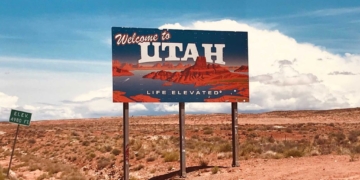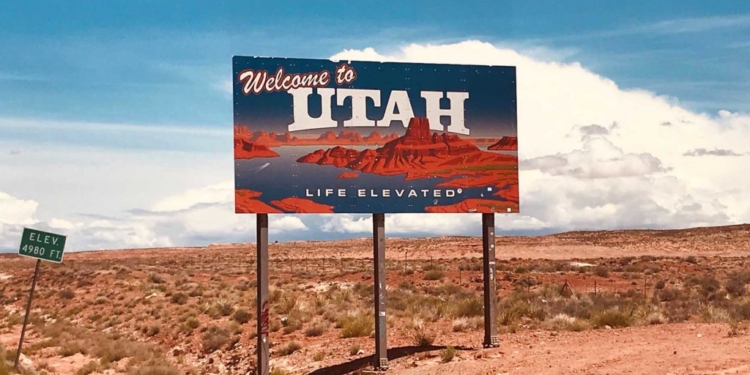Utah filed a major lawsuit with the Supreme Court on Tuesday that could have major implications for federalism and the administration of public lands across the country if successful.
Utah’s lawsuit contends that the Bureau of Land Management (BLM) does not have the authority to effectively hold “unappropriated” state lands indefinitely under the Federal Land Policy and Management Act (FLPMA), the state announced. The federal government controls about 18.5 million acres of “unappropriated” Utah land under the FLPMA, and Utah’s suit argues that the state ought to control this land because nothing in the Constitution expressly permits the federal government to do so instead.
In the context of federal lands, “appropriated” land is that which has been designated for specific purposes like military use or to serve as a national park, for example, according to the state of Utah. By comparison, “unappropriated” territory is essentially land that the federal government is controlling “without formally reserving it for any designated purpose.”
READ THE LAWSUIT:
Utah BLM Lawsuit by Nick Pope on Scribd
“It is not a secret that we live in the most beautiful state in the nation. But, when the federal government controls two-thirds of Utah, we are extremely limited in what we can do to actively manage and protect our natural resources,” Republican Utah Gov. Spencer Cox said in a statement about his state’s lawsuit. “We are committed to ensuring that Utahns of all ages and abilities have access to public lands. The BLM has increasingly failed to keep these lands accessible and appears to be pursuing a course of active closure and restriction. It is time for all Utahns to stand for our land.”
The state contends in its lawsuit that “Utah is deprived of basic and fundamental sovereign powers as to more than a third of its territory” because federal control prevents the state from taxing those land holdings and using eminent domain to build key infrastructure projects, for example. The status quo with respect to federal control over much of Utah is “egregious federal overreach” that “disrupts the constitutionally prescribed balance of power between the federal government and the States” and “cannot continue,” the lawsuit states.
In total, the federal government controls about 70% of Utah’s land, and the “unappropriated” land that is the subject of Utah’s legal challenge makes up about 34% of the state’s territory. The federal government also controls massive swaths of the land in many other Western states, including Nevada, Oregon, Idaho and Alaska.
Myron Ebell, chairman of the American Lands Council, explained the possible effects of Utah’s lawsuit in a statement shared with the Daily Caller News Foundation. The litigation could be hugely impactful beyond Utah’s borders if it is successful, according to Ebell.
“Utah’s suit is one of the most important federal lands cases ever brought to the Supreme Court. It raises fundamental questions of federalism and statehood and has wide ramifications,” Ebell said in his statement. “If the Supreme Court agrees that FLPMA conflicts with the Constitution’s property clause, then it will apply to all unappropriated federal lands in the West and Alaska.”
“I think Utah’s legal case is strong, but so is the practical impetus for bringing it. The federal government’s incredible mismanagement of federal lands is harming the environment and economy in many ways in Utah and across the West and Alaska,” Ebell continued. “Utah and other states have proven that they are much better stewards of their lands and wildlife than the federal land agencies. Turning management of 18.5 million acres of unappropriated federal lands (which is about one-third of the state) over to state and county management would be a boon to the environment and to rural economies.”
The BLM did not respond immediately to a request for comment.
All content created by the Daily Caller News Foundation, an independent and nonpartisan newswire service, is available without charge to any legitimate news publisher that can provide a large audience. All republished articles must include our logo, our reporter’s byline and their DCNF affiliation. For any questions about our guidelines or partnering with us, please contact [email protected].



























 Continue with Google
Continue with Google